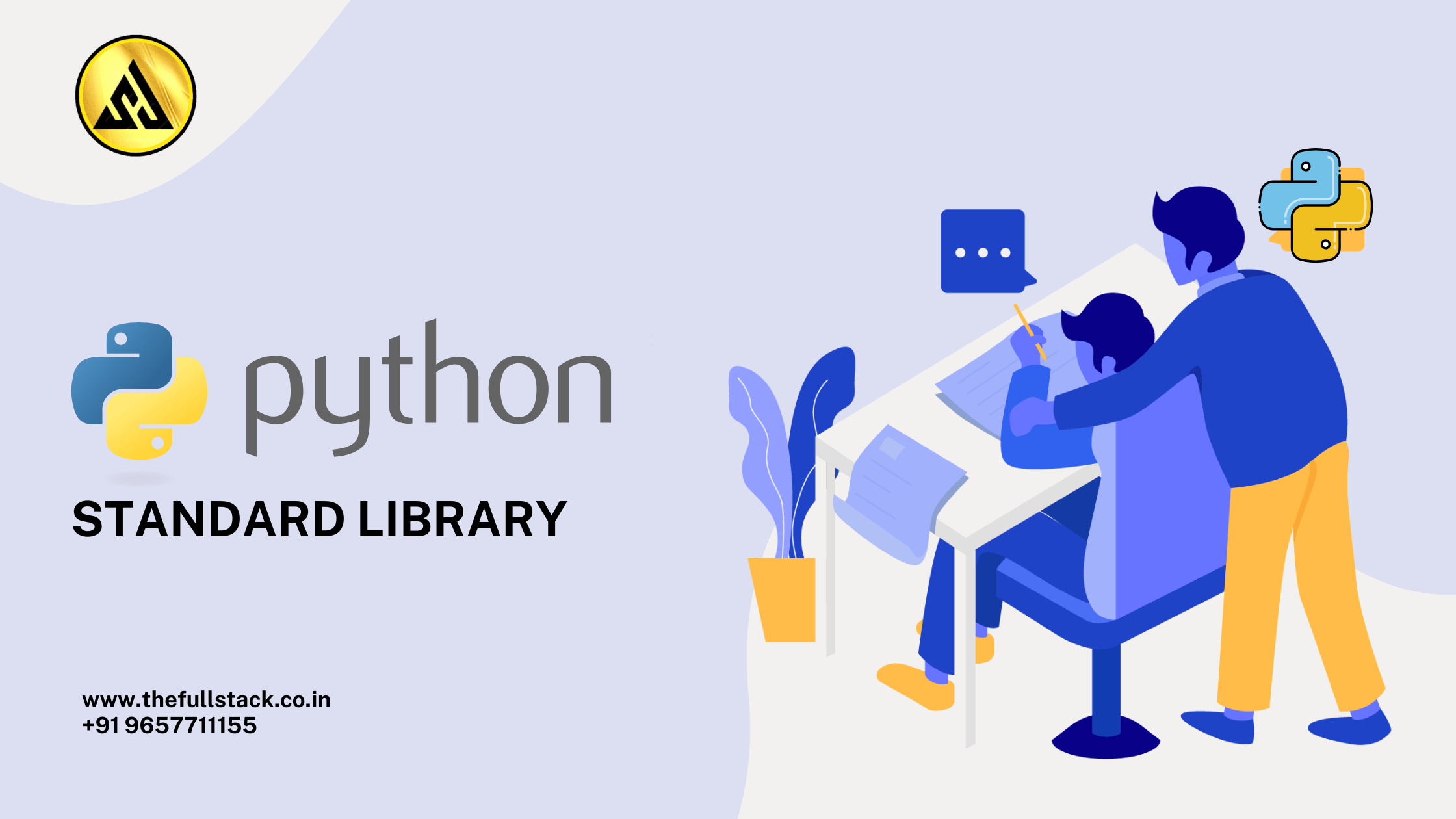
What is the Python Standard Library?
Python comes with a set of modules called the Python Standard Library by default. It offers functionality that is ready to use for:
- File and directory operations
- String processing
- Data structures
- Date and time
- Mathematical operations
- Networking
- Data serialization
- Multithreading and more
🧰 Top Python Standard Libraries You Must Know
1. os – Interacting with the Operating System
Use it for: File paths, environment variables, directory operations.
import os
print(os.getcwd()) # Get current working directory
os.mkdir('new_folder') # Create a new directory
✅ Great for scripting and automating tasks.
2. sys – System-specific Parameters and Functions
Use it for: Python version information, command-line inputs, and program exit.
import sys
print(sys.version)
print(sys.argv) # List of command-line arguments
✅ Helpful in CLI applications.
You might be like this:-List Comprehensions and Lambda Functions
3. datetime – Date and Time Handling
Use it for: obtaining the current date and time, date arithmetic, and formatting.
from datetime import datetime, timedelta
now = datetime.now()
print(now.strftime("%Y-%m-%d %H:%M:%S"))
tomorrow = now + timedelta(days=1)
print(tomorrow)
Essential for time-sensitive applications and logging.
4. math – Mathematical Functions
Use it for: Trigonometry, logarithms, rounding, constants like pi and e.
import math
print(math.sqrt(16)) # Square root
print(math.pi) # Value of pi
✅ Useful in scientific and engineering applications.
5. random – Generate Random Numbers
Use it for: Random picks, games, and simulations.
import random
print(random.randint(1, 10)) # Random integer
print(random.choice(['apple', 'banana', 'cherry'])) # Random element
Handy in testing, games, and simulations.
6. collections – High-Performance Data Structures
Use it for: named tuples, counters, ordered dicts, and default dictionaries.
from collections import Counter
my_list = ['apple', 'banana', 'apple', 'orange']
count = Counter(my_list)
print(count)
✅ Makes complex data manipulations easier and faster.
7. itertools – Iterator Functions for Efficient Looping
Use it for: Infinite iterators, combinatorics, and more.
import itertools
perms = itertools.permutations([1, 2, 3])
for p in perms:
print(p)
✅ Ideal for solving algorithmic problems.
8. json – Working with JSON Data
Use it for: Reading and writing JSON files.
import json
data = {'name': 'Alice', 'age': 25}
json_string = json.dumps(data)
print(json_string)
parsed_data = json.loads(json_string)
print(parsed_data)
✅ Crucial for web APIs and configuration files.
9. re – Regular Expressions
Use it for: Pattern matching in strings.
import re
pattern = r"\bPython\b"
text = "I am learning Python programming."
match = re.search(pattern, text)
print("Match found!" if match else "No match")
✅ Very useful for data validation and text processing.
10. subprocess – Run System Commands
Use it for: Executing shell commands from Python.
import subprocess
result = subprocess.run(['echo', 'Hello from Python'], capture_output=True, text=True)
print(result.stdout)
✅ Great for automation and DevOps tasks.
11. threading – Multithreading Support
Use it for: Running multiple tasks in parallel.
import threading
def task():
print("Running in thread")
t = threading.Thread(target=task)
t.start()
✅ Helps improve performance in I/O-bound tasks.
12. time – Time-Related Functions
Use it for: Delays, timestamps, measuring execution time.
import time
start = time.time()
time.sleep(2)
end = time.time()
print(f"Elapsed time: {end - start} seconds")
✅ Useful in performance testing and scheduling.
📝 Bonus: Other Noteworthy Libraries
| Library | Use Case |
|---|---|
shutil | File and directory operations |
statistics | Mean, median, mode calculations |
logging | Advanced logging and debugging |
functools | Function tools like lru_cache, partial |
glob | Pattern-based file searching |
🚀 Final Thoughts
Learning Python involves more than simply becoming proficient with syntax; it also involves being aware of the various tools. Similar to a Swiss army knife, Python’s standard library helps you save time, effort, and external dependencies.
These standard libraries ought to be your close friends if you’re serious about learning how to write Python code.
You might be like this:-
What is AWS Lambda?A Beginner’s Guide to Serverless Computing in 2025
Java vs. Kotlin: Which One Should You Learn for Backend Development?


Leave a Reply